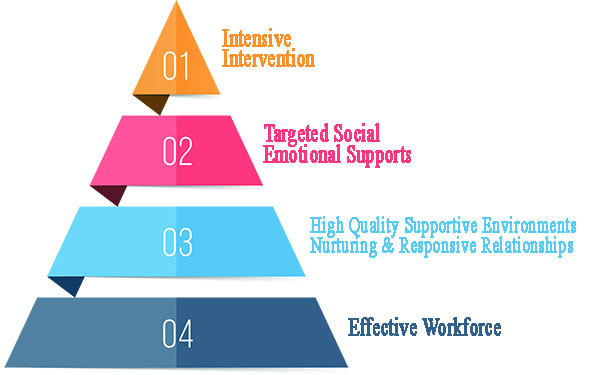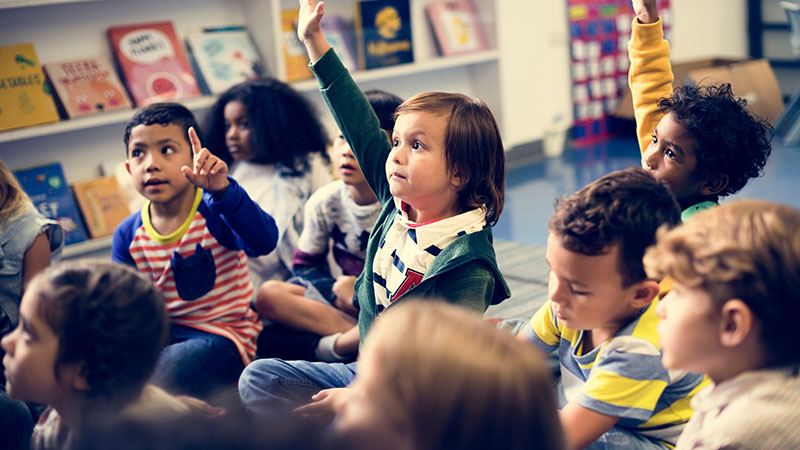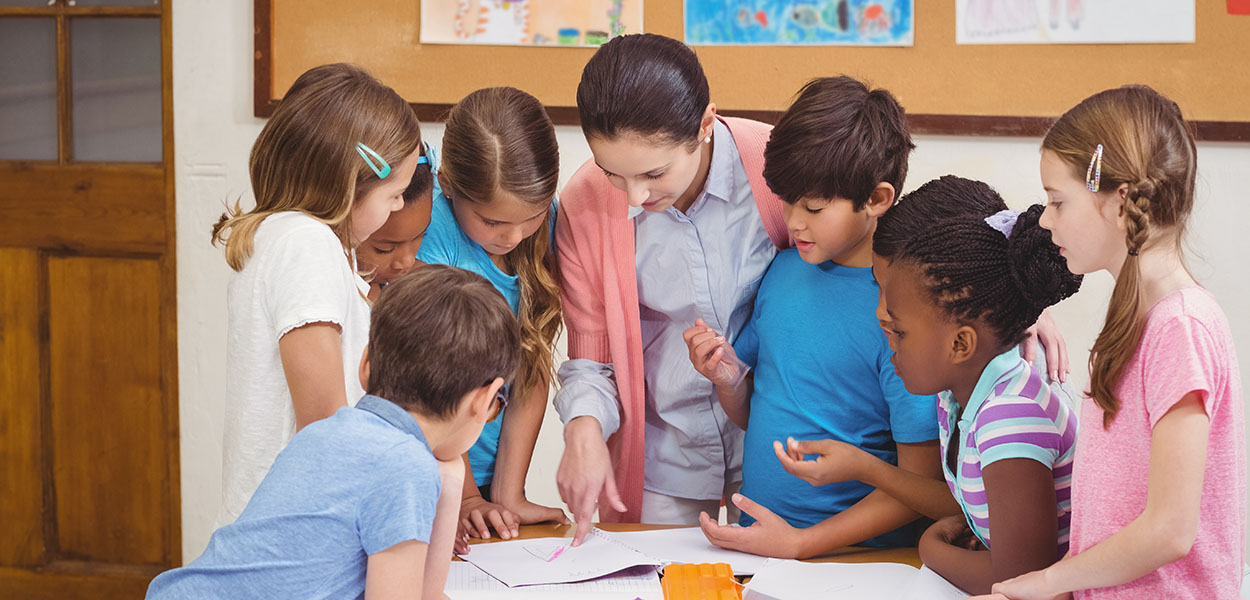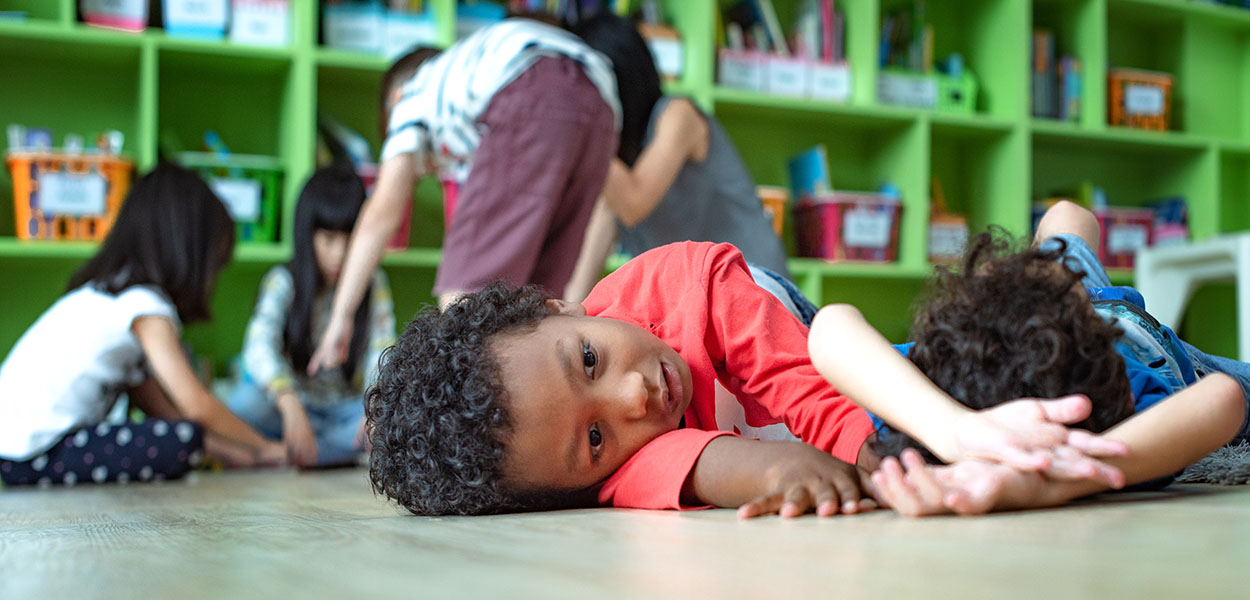Early childhood measurement development and validation
We are developing measurement tools within early childhood programs to study and leverage the strengths of ethnically and linguistically diverse low-income children, families, and teachers.
- Peer Play and Preschool Social Competence
- Classroom Emotional & Behavioral Adjustment
- Friendship & Empathy
- Teacher Self-Efficacy
- Teacher-child interactions
- Family Engagement
Making connections for children, teachers, & families: Preschool intervention development and evaluation
Pyramid Model – PI Dr. Rebecca Bulotsky-Shearer, Co-PI Dr. Jill Ehrenreich-May
Through generous funding through The Children’s Trust Early Childhood Demonstration Program, we are collaborating with Miami-Dade County Public Schools (M-DCPS) Department of Early Childhood Programs and Miami Children’s Initiative (MCI) to develop and test the efficacy of the Teaching Pyramid Model and the influence of implementation supports to teachers to meet the needs of children who display challenging behaviors in Head Start Prekindergarten and Prekindergarten Special Education Programs in collaboration with Miami-Dade County Public Schools (M-DCPS) Department of Early Childhood Programs, Head Start, and family engagement activities with Miami Children’s Initiative (MCI). The overarching goal is to evaluate whether the Teaching Pyramid Model program makes a measurable, sustainable impact in under-resourced communities on teacher and parent practices that promote children’s positive social-emotional development as a foundation for kindergarten readiness and early school success. Three implementation supports include: (a) practice-based coaching support to teachers, (b) teacher professional learning communities, and (c) family engagement and home-school connections activities.
The Teaching Pyramid Model is a professional development and education program to promote the social-emotional readiness of children. This program is a multi-tiered, data-driven system of supports developed by the Center for Social-Emotional Foundations of Early Learning (CSFEL) for use within early childhood programs serving children birth to 5. The Pyramid Model serves as both a prevention and intervention program, providing early education teachers with skills to foster the healthy development of social-emotional competencies in all children in their classrooms, while also offering a framework for teachers to intervene to provide more targeted social-emotional skill development for children presenting with challenging behaviors or requiring additional support.

Learning to Objectively Observe Kids (LOOK)
http://lookconsultation.org/
We have developed an intervention, Learning to Objectively Observe Kids (LOOK) in collaboration with colleagues at the University of Virginia, Center for Advanced Teaching and Learning. The goal of the project is to improve early childhood teachers’ observational skills, increases their understanding of the interdependence between children’s behavior and the resources/opportunities available to them within specific classroom contexts, and helps them to use this information to select evidence-based strategies to meet the needs of children who display challenging behaviors. Our team is currently evaluating the efficacy of the intervention with data from 111 teachers and their students who participated in a randomized controlled trial.
Miami Lighthouse for the Blind (MLB) Early Learning Center
https://www.miamilighthouse.org/ChildrenServices.asp
We are collaborating with the Lighthouse Early Childhood Learning Center™ where toddlers and preschool children with visual impairment learn together with typically developing children from the community. The MLB model utilizes the evidence based HighScope Curriculum for Preschool Children and Infants and Toddlers, with specific adaptations for children with vision impairment, and is unique to Miami-Dade County. Our team is currently evaluating the program’s implementation of Conscious DisciplineTM, an evidenced based model of social emotional learning. Conscious DisciplineTM is a curriculum focused on teaching teachers, parents, and children self regulation. Our primary goal is to examine the implementation of Conscious DiscipleTM and its impact on classroom quality and child outcomes and teacher and parent mindsets and behaviors.
The IDEAS Consortium
http://ideas.miami.edu
The IDEAS Consortium, originally called the Miami-Dade County Partnership for School Readiness and Early School Success, is a partnership between our UM research team, local government funder of children’s programs, The Children’s Trust (The Trust), and the primary agencies providing subsidized child care, public prekindergarten, Head Start/Early Head Start, and early intervention services in the County. Partners agencies include Miami-Dade County Community Action and Human Services Department Head Start/Early Head Start Program (HS), the Early Learning Coalition of Miami-Dade/Monroe, Inc. (ELC), The Children’s Trust (The Trust), Miami-Dade County Public Schools (M-DCPS), and The University of Miami (UM). Our partnership aims to identify gaps and opportunities where data could drive planning, decision-making, service coordination, and advocacy to promote successful transition to kindergarten for children at greatest risk for school failure.







